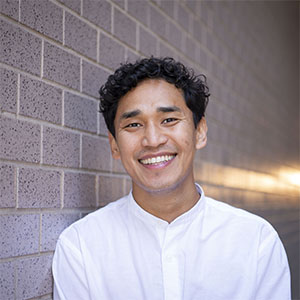Raising our voices for tuberculosis and the leadership of those surviving it
“We have lived by the assumption that what was good for us would be good for the world. We have been wrong. We must change our lives, so that it will be possible to live by the contrary assumption that what is good for the world will be good for us. And that requires that we make the effort to know the world and to learn what is good for it.” – Wendell Berry, American farmer, poet, and environmentalist
These words are timeless, but they are also timely. As a survivor of multidrug-resistant tuberculosis (TB), his words resonate with me as I reflect on this World TB Day. He suggests we learn more about the world and find out “what is good for it.” In the fight to end TB, the best way to do that is to center lived experiences and affected community leadership. But recently, the White House has done exactly the opposite, dismantling many of the programs built on this expertise.
TB is brutal. But so is the treatment.
TB can be devastating. It typically attacks the lungs, interrupting life and introducing suffering. It thrives on poverty and the many risks that come with poverty (malnutrition, crowded living spaces, poor ventilation, and more). TB also creates more inequalities. Treatment is demanding with challenging side effects. They include intense nausea, nerve damage, and even irreversible disabilities (e.g., loss of hearing or vision). Some, especially people with drug-resistant TB, would say that the treatment is more difficult than the disease. I would agree after enduring four months of isolation and 8,000+ pills causing a range of side effects. We need continued investments in shorter and safer treatments.
With a complex disease and equally difficult treatment, community leadership is non-negotiable.
Biomedical solutions alone will not end TB. The leadership of affected communities and civil society must play a central role. Community voices strengthen advocacy with policymakers. These voices get to the heart of the matter and identify the most important solutions. Community partnerships with TB researchers and practitioners make research and programs more impactful. Without local leaders who know the strengths and challenges of their area, health care access will not improve. On the flip side, when affected communities lead, new tools and technologies scale up faster, healing and prevention increase. No disease has been eliminated without communities.
Communities also have insights into nuanced cultural and social norms. They understand the political and social histories that have shaped their lives. They possess hard-won wisdom from lived experiences being affected by TB. No one knows better how to get things done where they live than the people who live there. And no one wants a TB-free world more than the people most impacted.
This program in Cambodia shows how local leaders get results. It’s at risk of disappearing.
Directly affected people also have the deepest knowledge of the harm done by recent cuts to U.S. foreign aid. This case study from Cambodia provides a look into community-led programs put in a precarious position. The incredible work of thousands of community health workers — who themselves are TB survivors and family members of TB affected people — has been terminated. They were leading efforts to find and help diagnose TB. They then provided linkages to care for those in need of treatment and offered counselling and treatment support. Each day that the program remains stopped, more people sick with TB are going undiagnosed. More people lose access to their lifesaving treatment, more people are suffering and dying.
Congress needs to restore and protect TB programs led by communities.
RESULTS’ work calling on Congress to reinstate TB programs cannot stop now. With the increasing toll of funding freezes and program terminations, we must redouble our efforts. We must demand not just funding resources for TB programs but support for the programs that center lived experience leadership. Power must be shared with those closest to the suffering if we hope to end this disease.
TB does not understand borders. The burden of TB is profoundly unkind, unjust, and unequal. The loss of 1.25 million people each year to a preventable, curable disease is not good for the world, nor us.
